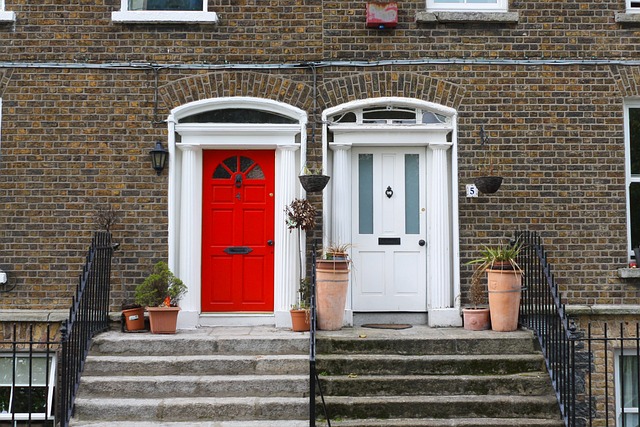PVC (polyvinyl chloride) doors have become increasingly popular in UK households over the past couple of decades, and many homes have them. Here is an overview of some of the main pros and cons of choosing PVC doors.
Cost Effective
One of the biggest advantages of PVC doors is that they are very cost effective compared to other options like wood or aluminium. PVC is an inexpensive material, so PVC doors can be produced for a fraction of the cost of other materials. This makes them one of the most budget-friendly options for external doors. Installation is also straightforward and fast, reducing labour costs. Over the lifetime of the door, the low maintenance requirements also save money compared to alternatives.
Low Maintenance
A major plus point of PVC is that it requires very little maintenance. Unlike wood, it does not rot, warp, or need regular painting or varnishing. A simple wipe with a damp cloth is all that is needed to keep PVC clean. It does not require any specialist cleaning products or maintenance routines. This makes PVC an extremely low hassle and convenient material for external doors.
Weather Resistance
PVC is highly weather-resistant and can withstand the damp British climate. It does not absorb water like wood, so it won’t become damaged or warped. The colour also does not fade in sunlight. This makes it an ideal low-maintenance solution for outside doors. PVC doors typically come with at least 5 years of manufacturer’s weather guarantee.
Good Insulation
PVC has naturally good insulating properties. PVC doors usually have an insulating foam core, making them excellent at preventing heat loss and keeping homes warmer. This can help reduce energy bills. Sound insulation is also improved compared to single-glazed doors.
Large Range of Styles
One thing putting some homeowners off PVC doors in the past was the limited range of styles available. However, technological advances mean there is now a vast selection of styles and finishes to suit any home. You can get PVC doors made to replicate traditional wooden designs or with a more contemporary look. There are also numerous colour and glass options.
Not as Strong as Wood
Despite the pros, PVC does have some limitations to be aware of. The main one is that it is not as inherently strong and rigid as solid wood. Additional steel or aluminium reinforcement may be needed within a PVC door if a sturdy lock is required. Cheaper PVC doors may flex and eventually warp if not properly reinforced.
Can Discolour Over Time
PVC is not immune to the effects of weathering. While it does not rot or warp like wood, extended sun exposure can cause the colour pigments to gradually break down. After 5-10 years, the original vibrant colour may dull and fade. This does depend on the door’s location and exposure. Modern UV-resistant finishes help minimise discolouration.
Can Dent Easily
PVC is flexible but also relatively soft. This means it can be prone to denting from impacts, unlike wood which has more resistance. Care needs to be taken when handling and installing PVC doors to avoid damage. Minor dents may be repairable, but severe ones can permanently mar the door’s appearance.
PVC doors offer homeowners a durable, low maintenance, and budget-friendly option. Their weather resistance and good insulation also make them a practical choice for the British climate. However, minor drawbacks like a tendency to discolour and dent mean they may not suit all properties and preferences.

